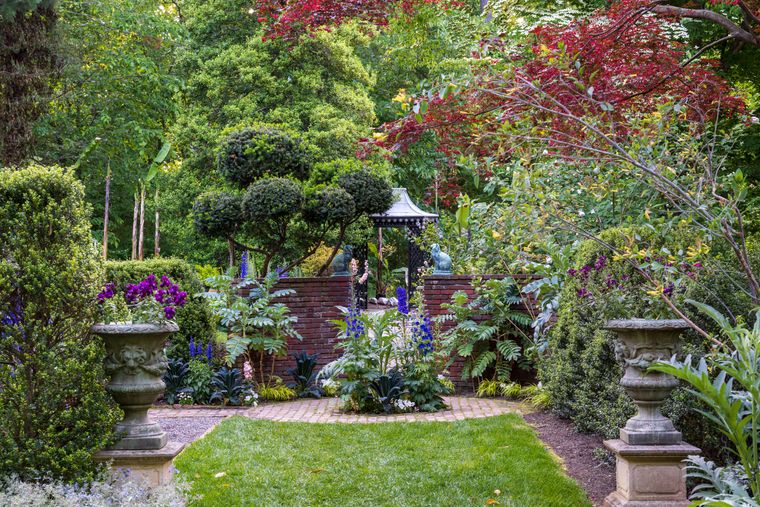
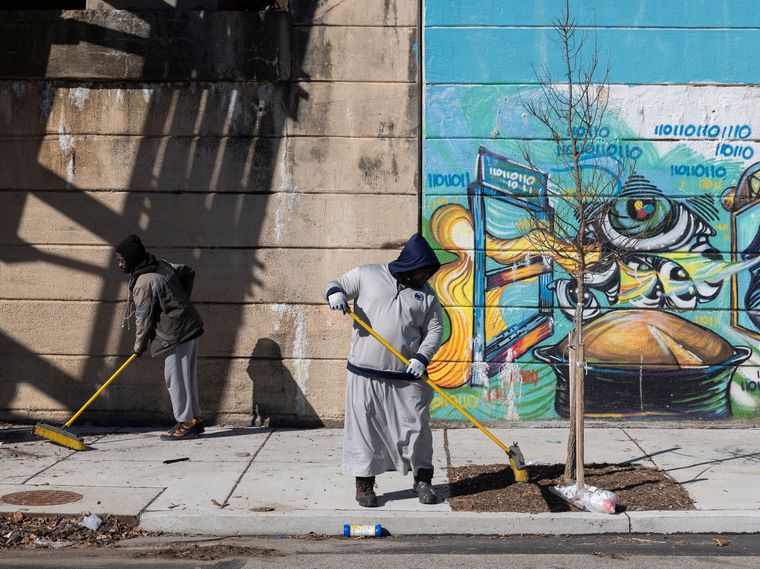
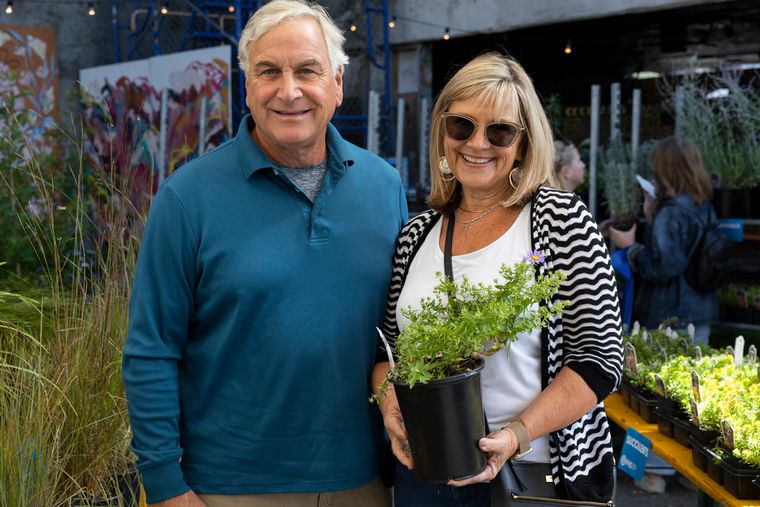
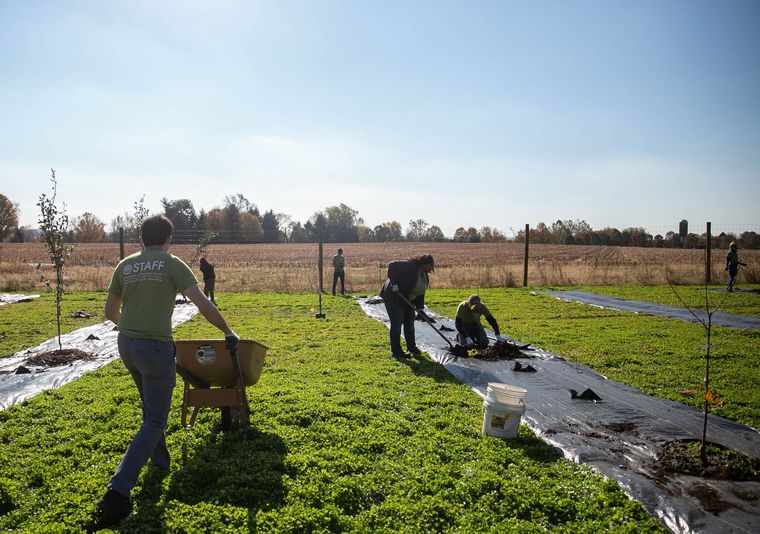
Changing Places: How Philadelphia Is Turning Vacant Lots Into Green Community Spaces
phs community & events

Text and Photos by Blue Root Media
Four homes once occupied the wedge of land between Rising Sun Avenue, Goodman Street, and West Ontario Street in North Philadelphia. The two single houses and a duplex were mostly unoccupied in recent years. In 2018, a fire razed them all, and in the aftermath, the lot was untended, becoming an eyesore and a magnet for trouble. Today, it’s clean and green, thanks to the partnership between neighborhood groups and PHS.
This space is one of the 12,000 vacant lots across the city that have been stabilized by the PHS Philadelphia LandCare program. The effort benefits the health and well-being of people living near these parcels, engages them in their communities, and generates economic opportunity for local residents. If you want to see your support for the power of “gardening for the greater good” in action, here’s a meaningful place to start.



Local Connections
In the 1960s, one of the single homes on the Rising Sun Avenue parcel was owned by Rita Kelly, recalls School District of Philadelphia executive director Charlotte Brickhouse, who lives nearby. “When my grandmother bought a house on the block, Miss Kelly welcomed her and helped her become a part of the neighborhood,” Brickhouse says. “It was mostly Italian people at the time. There was even a shop that just sold cheeses,” she adds.
Years later, Brickhouse’s mother, Judy Williams, purchased a home across the street from Kelly’s, and when it became unsafe for the older woman to stay in her place, Williams took her in. “My mother took care of Miss Kelly because she had been so good to my grandmother.” Fortunately, Kelly was with Williams when the blaze destroyed the houses.
After the fire, the buildings were declared unhabitable and were demolished, but the parcel was left open and untended. “There was no fence, and the grass was overgrown,” Brickhouse says. Trash accumulated, and people who sold and used drugs began to gather there, Williams reports. In 2021, the Nicetown Community Development Corporation (CDC) and PHS stepped in. The lot was cleared, a fence was installed, and the grass is now cut regularly.
Love stories like this? Become a PHS member and receive every issue of GROW, our award-winning magazine.
How the PHS LandCare Program Restores Vacant Lots Across Philadelphia
Parcels across the city have received the same treatment. “Through our PHS Philadelphia LandCare program, we partner with local small business contractors to stabilize vacant lots by leveling the soil, clearing weeds and debris, growing grass, installing fencing, and planting trees,” explains Melissa Stutzbach, PHS director of LandCare. “Through our PHS Community LandCare program, we partner with nonprofit community-based organizations that select vacant lots within their own communities and hire from within those communities to maintain them.”
While PHS provides expertise and support, neighborhood residents are employed to do the work. Kerry Wilson, Nicetown CDC’s LandCare supervisor, and a crew of six maintain 750 lots located in the Logan, Germantown, and Tioga sections, as well as in Nicetown. A total of 11 different local contractors (with four more to be added this spring) care for all the lots across the city. More than 85 percent of contractor partners are minority and/or women owned, according to Stutzbach.
“Our partners have long-standing relationships with their communities and have built trust that is necessary to understand community needs and interests and navigate neighborhoods that have been historically disinvested,” she says. Many of the contractors' employees were hired through the PHS workforce development program after they completed training in basic landscaping tasks. They include more than 25 people who had previously been incarcerated.
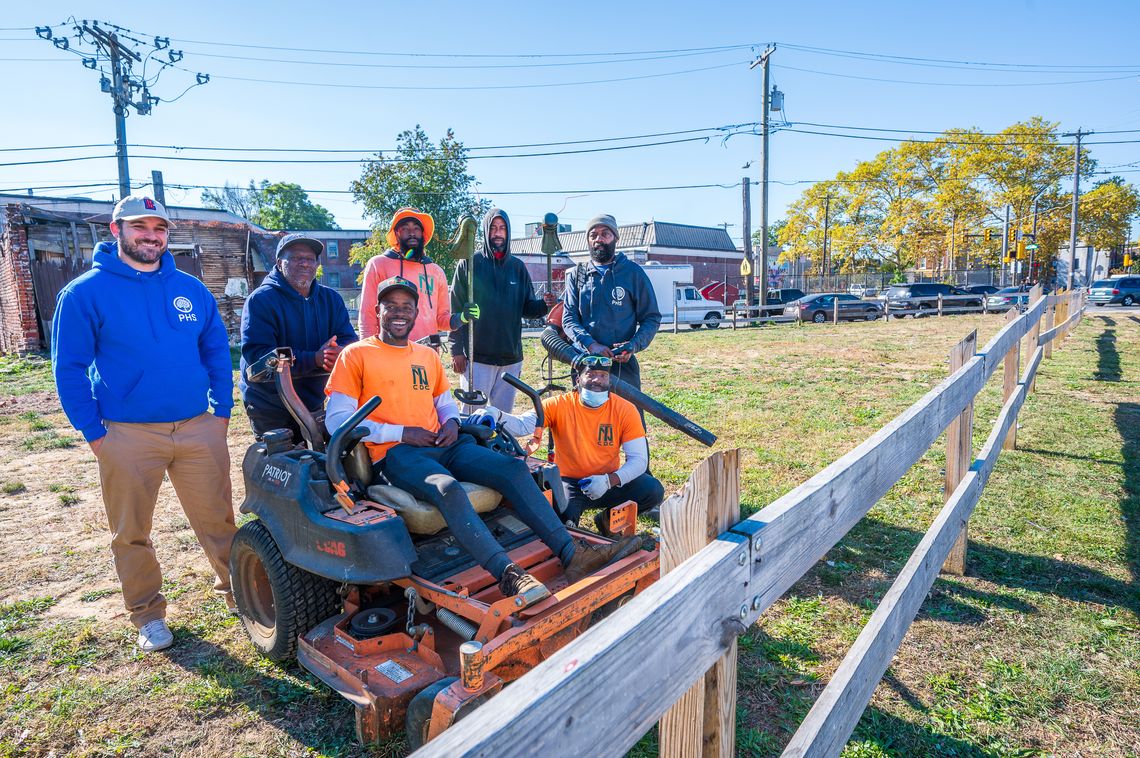
How PHS Identifies and Transforms High-Need Vacant Properties
PHS works with the City of Philadelphia’s Division of Housing and Community Development to identify target neighborhoods and parcels of land that are abandoned, blighted, and receiving persistent illegal dumping. Sites that are close to SEPTA routes, business corridors, high-traffic residential areas, and school locations and walking routes—and especially sites with high crime, high population density, low household income, and poor health outcomes—are prioritized, Stutzbach says.
When choosing lots to stabilize, PHS takes requests from local residents, various departments of city government, and the offices of City Council representatives. The staff of Philadelphia's Community Life Program (CLIP) approve the final selections.
“The LandCare program has grown to be the primary catalyst for maintaining vacant land in Nicetown and surrounding neighborhoods. Without it, the parcels would be overgrown and strewn with litter,” says Majeedah Rashid, Nicetown CDC’s chief operating officer. “The community
The Economic and Health Benefits of Greening Vacant Land in Philadelphia
The impact of stabilizing vacant parcels extends well beyond the fences that are installed around them. Since the launch of the PHS Philadelphia LandCare program in 2012, more than 800 parcels have been rehabilitated for housing, commercial properties, and neighborhood green spaces. The value of homes within a 1,000-foot radius of a greened lot rises 4.3 percent, on average, after the first year and increases up to 13 percent (cumulatively) after six years, according to a study by the Penn Institute of Urban Research.

People living near cleaned and greened lots enjoy significant health benefits too. Feelings of stress and depression are 40 percent lower among these residents when compared with those who live where vacant properties are untended, found a 2018 study published by Eugenia South, MD, the faculty director of the Penn Medicine Center for Health Justice. Gun violence is 29 percent lower in neighborhoods where vacant lots are stabilized. “Green spaces calm people’s minds,” Nicetown CDC’s Wilson says. “We all can use that.”
“When a space appears to be not cared for, it quickly becomes a literal dumping ground,” Brickhouse says. “When neighbors see vacant lots cleaned up and maintained, it shows that someone is investing resources in places that usually get no attention. It tells us someone cares.”
Learn more about how PHS is transforming vacant land, suggest a parcel for stabilization, and find out how you can help.


